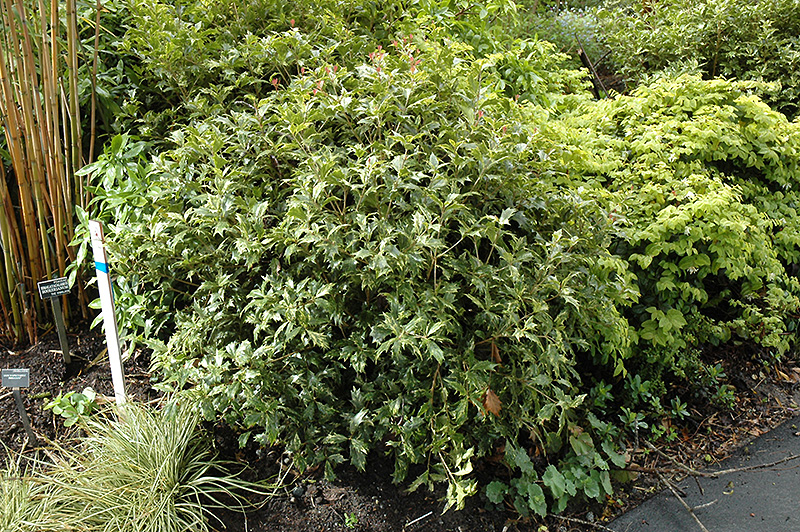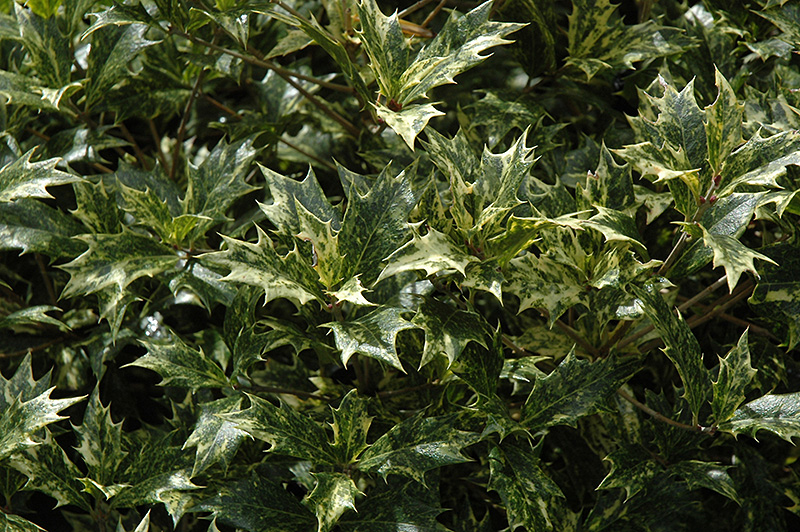$-$BeginNetPS$-$
$-$EndNetPS$-$
Variegated False Holly
Osmanthus heterophyllus 'Variegatus'
Height: 8 feet
Spread: 6 feet
Sunlight:
![]()
![]()
Hardiness Zone: 6b
Other Names: Tea Olive, Olive Holly, Holly-Leaf Osmanthus
Description:
Spiny, lustrous leaves are holly-like, but it's related to lilac and privet; the main attraction is its white variegated leaves; covered with fragrant, white trumpet flowers; more adaptable than holly
Ornamental Features
Variegated False Holly is covered in stunning fragrant white tubular flowers along the branches in early fall. It has attractive white-variegated dark green foliage. The spiny oval leaves are highly ornamental and remain dark green throughout the winter. The smooth dark gray bark is extremely showy and adds significant winter interest.
Landscape Attributes
Variegated False Holly is a dense multi-stemmed evergreen shrub with an upright spreading habit of growth. Its average texture blends into the landscape, but can be balanced by one or two finer or coarser trees or shrubs for an effective composition.
This is a relatively low maintenance shrub, and is best pruned in late winter once the threat of extreme cold has passed. Deer don't particularly care for this plant and will usually leave it alone in favor of tastier treats. Gardeners should be aware of the following characteristic(s) that may warrant special consideration;
- Spiny
Variegated False Holly is recommended for the following landscape applications;
- Accent
- Mass Planting
- Hedges/Screening
- General Garden Use
- Topiary
Planting & Growing
Variegated False Holly will grow to be about 8 feet tall at maturity, with a spread of 6 feet. It tends to fill out right to the ground and therefore doesn't necessarily require facer plants in front, and is suitable for planting under power lines. It grows at a slow rate, and under ideal conditions can be expected to live for 40 years or more.
This shrub does best in full sun to partial shade. It does best in average to evenly moist conditions, but will not tolerate standing water. It is not particular as to soil pH, but grows best in rich soils. It is highly tolerant of urban pollution and will even thrive in inner city environments. This is a selected variety of a species not originally from North America.


